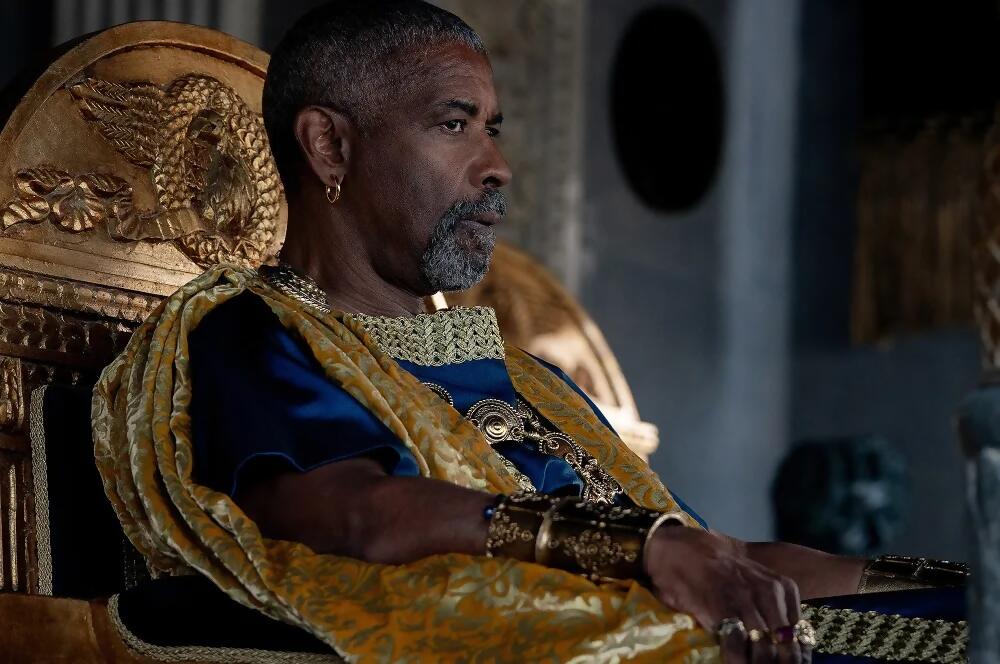Why are film trailers so bloomin’ long? by James Harvey | August 12, 2024
Three minutes, it turns out, is just enough time for a trailer to spoil a film’s entire plot. So why are teasers still so long, when brevity makes them so much better?
There was a time not so long ago when it felt like every blockbuster in the multiplex was pushing the two-and-a-half-hour mark. The Flash was two hours 24 minutes; Black Panther: Wakanda Forever was two hours 41; Fast X was two hours 21 (why?). Scarcely a film sailed by which couldn’t have done with an appointment with an overzealous hairdresser. Every review implicitly ended with a “by the way, it could do with losing 20 minutes” tacked on. It was chaos.
Happily, Hollywood seems to have listened. Of the top ten highest-grossing films of 2024, just two – Dune: Part Two and Kingdom Of The Planet Of The Apes – are longer than 130 minutes. Most roll credits before they even hit the two-hour mark. Lovely.
Having won this battle for our social media-ravaged attention spans, then, I suggest we move onto a new cinematic target: the trailer. Two-and-a-half minutes, I’d say, is far too long. Three minutes? You’re insane. I could watch a broadly legible sped-up version of the film on TikTok in that time (Film Stories does not advocate piracy).
But for decades now, two minutes 30 has been the industry standard for your average theatrical trailer, and it’s a standard studios have been keen to defend. Back in 2013, the National Association of Theater Owners (which rather arrogantly shortens its name to ‘NATO’) attracted the ire of Hollywood’s great and powerful when it suggested capping trailer lengths at two minutes, claiming cinema staff took the brunt of complaints from the public, many of which suggested the previews were both too long (they still are) and give away too much of the plot (they still do).
These entirely voluntary guidelines came into force the following year, and have since been entirely ignored. Since then, it feels like trailer bloat has only gotten worse. At its most egregious, we’re now having to sit through three trailers at once.
Exhibit A: the bonkers first look at Ridley Scott’s Gladiator II.
Coming in at a hefty three minutes, the thing starts with the most hated of all the new marketing cliches – the trailer for the trailer. The “trailer starts now”, it boldly informs us, with enough irony to de-wrinkle a rhinoceros. We can cut that, for a start – that’ll save six seconds.
Next up, the trailer proper. Two minutes of gladiatorial combat, big boats, and Denzel Washington having a good old chuckle, all set to the usual dramatic bangs, whooshes and trailer-y noises we’ve come to expect. So far, so good.
Once that’s done, though, we get another musical key change. Jay-Z and Kanye West’s No Church In The Wild swoops in to fill the obligatory pop song quota, as if the initial editor got sacked two-thirds of the way through production and refused to show the replacement what they’d locked in. It’s becoming a popular move in the trailer-making scene, and gives the impression we’re watching two teasers back-to-back rather than one consistent vision.
Contrast that with the first trailer for 20th Century Fox’s Logan, prioritising Johnny Cash’s cover of Hurt over the bangs, screams and slashy-claw noises the images it shows off. By confidently using one song across the entire trailer and letting it take centre-stage, Logan and Hurt have become indelibly linked. It also makes the film look really flipping cool (at under two minutes, too).
Of course, a longer runtime means execs can show off more of the film they’re trying to sell, which brings us to another problem, and another example. Enter Exhibit B: Father Stu.
An astonishing three minute 34 second runtime aside, this is a particularly extreme example of a trailer which gives away, well, everything. Every plot point is here, from the titular character’s multiple career changes to the diagnosis of his illness and even the “Surprise! Everyone turned up to your birthday party/sermon” beat which even the most ruthless marketing teams usually avoid giving away.
Why do studios do it, then? According to an Entertainment Weekly article from 2015, it’s because audiences want them to.
“Nine times out of ten, the more of the plot you give away, the more interest you garner from the audiences,” Matt Brubaker, president of theatrical at Trailer Park, told them. It’s a finding which almost every focus group the studios can get their hands on seems to corroborate. Especially now, when getting folks into the cinema seems harder than ever, people apparently want to be sure they know what they’re getting before they part with their hard-earned cash.
This, I’ll admit, is a difficult reality for me to get my head around. Does your average punter really want to know the plot before they decide to see a movie? The premise, sure: a police chief tries to hunt down a big shark; a family join forces to get their bespectacled daughter to a beauty pageant; a beekeeper shoots his way through an evil empire of phone scammers. The rest of the trailer’s job, surely, is just to convince us the film delivers on its promises?
Read more: A Complete Unknown | Bob Dylan biopic arriving this year
Something like the most recent Alien: Romulus trailer, which has proved a little too detailed for some in the Film Stories office, at least seems like there’s some logic behind it. Sure, it shows off what must surely be the overwhelming majority of the sci-fi slasher’s kills, but those are the fun bits that should entice a prospective audience. I can see certain people wanting reassurance that the film will include plenty of gory stuff before splashing out on a ticket.
Revealing too much of the plot, though, can be a double-edged sword. Just ask Abigail, the vampire-ballerina horror flick that works a treat if you don’t know it’s a vampire-ballerina horror flick. Unfortunately the trailer, and all the associated marketing of the film, gives that particular twist away almost immediately. Spoiler-y trailers might play well in focus groups – but if they make the actual film-watching experience worse for everyone else, have they really done their job?
It is, of course, much harder to spoil a film properly if you’ve got two minutes to work with, rather than three. Conveniently, if you clip plenty of these overlong marketing materials at the 2/3 mark, you’ll trim off the bit where they inexplicably explain the third act. Everybody wins!
But there are more ways that shorter trailers could end up being more profitable for the industry as a whole. As NATO (not that one) suggested in 2013, shorter trailers before films make for happier customers. Happier customers come back to the cinema more often. Even a studio spokesperson’s suggestion that theatre owners would use it as an excuse to get more advertising space reads a little differently in 2024 – it’s not like they couldn’t do with the cash.
Just as importantly, shorter trailers just tend to be more entertaining. Think back to the original Alien trailer in 1979 (the one with the egg and the spooky soundscape), or this rather nifty Man Of Steel teaser from the same year as NATO’s trailer-length dispute. The most celebrated trailer for the biggest film of 2023, Barbie, clocks in at an economical 74 seconds.
If you’re looking for a trailer to go viral, too, it’s helpful to think a little outside the box. Or, perhaps, just make that box smaller. One of my favourite trailers of recent months is this teaser for insane-looking Demi Moore vehicle The Substance. It’s 30 seconds long, uses minimal clips from the film, and I have absolutely no idea what’s going on.
It does, however, look like it’s been made by people with a vision. The point of a trailer isn’t, of course, to make a well-executed work of art – but it does make your film look good. If shorter trailers are cheaper, and do that better than longer ones… Aren’t they sort of a no-brainer?



Terminator II feels like it was the start of this trend. The big bad guy from the first movie returns, with the twist later revealed to be that this time he’s here to protect the main character. Only instead of a movie with a shocking twist, we got a trailer that reveals it instead.
Nobody was going into that movie thinking Arnold was the bad guy again.
I’ll double check but I have the T2 script book which mentions this. If I remember correctly, the original idea was to market the film with Arnie as the bad guy and fool people that Robert Patrick was the new Reese.
Then they changed their minds and decided to market the film as we know it with Arnie is now the hero.